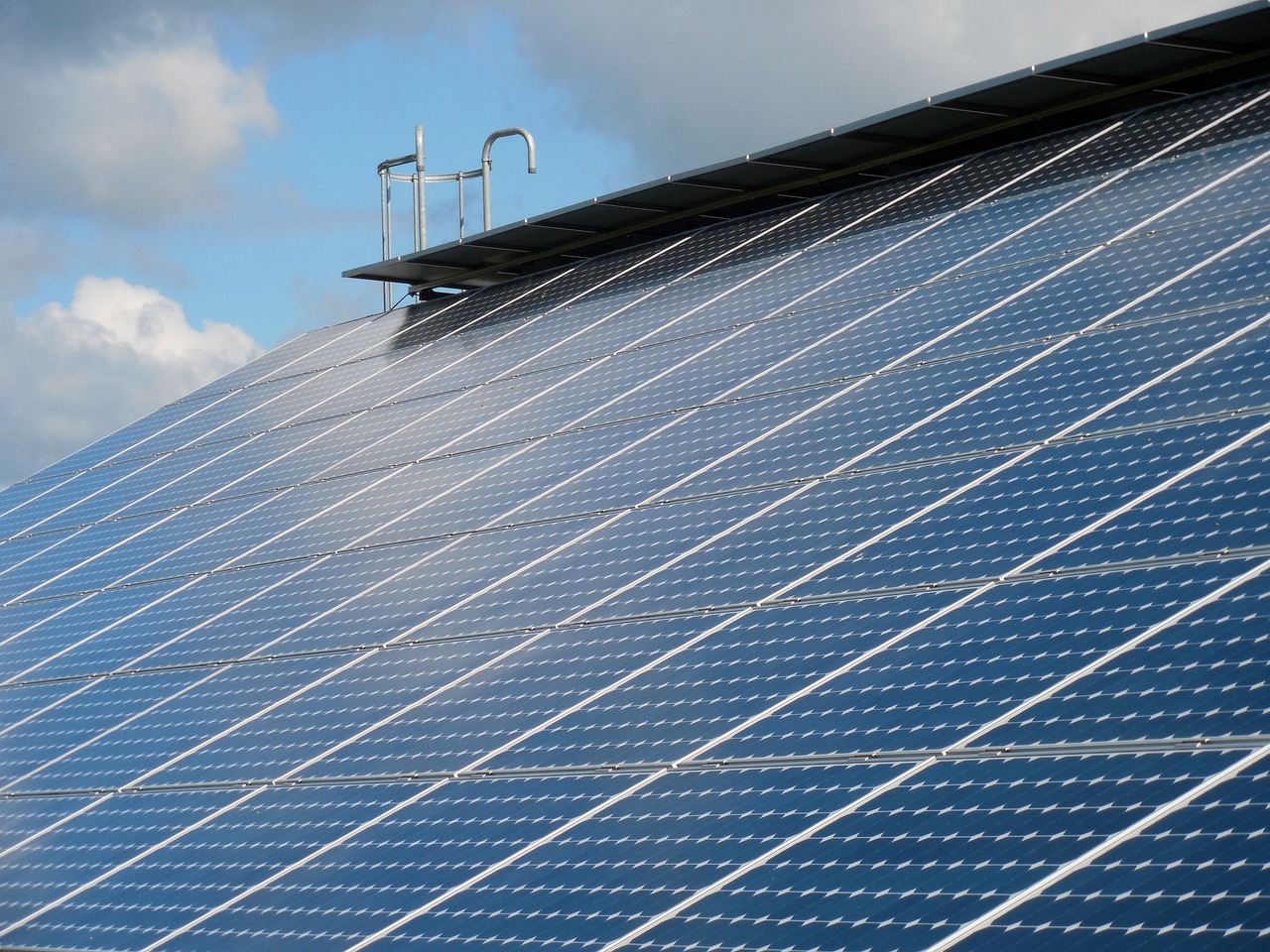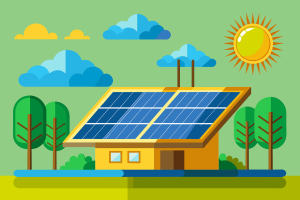Hey there, friends! Let’s dive into the wonderful world of solar power and uncover the amazing benefits it offers. Solar power isn’t just about powering our homes with clean electricity; it’s about creating a sustainable future for all of us. By embracing solar energy, we can significantly reduce our carbon footprint, save money on our energy bills, and promote energy independence. Plus, tapping into this natural, renewable resource helps drive innovation and create green jobs, boosting our economy. So let’s explore how solar power is lighting the way to a brighter, more sustainable tomorrow! Have you ever wondered about the benefits of solar power? As we strive to make our planet a better place for future generations, many of us are beginning to look toward more sustainable and eco-friendly energy sources. One of the most promising alternatives is solar power, harnessing the energy of the sun to generate electricity. But what exactly makes solar power so beneficial?

Understanding Solar Power
First, let’s get a basic understanding of what solar power is. At its core, solar power is the conversion of energy from sunlight into electricity. This can be achieved through various technologies, the most common being photovoltaic (PV) panels that convert sunlight directly into electrical energy.
The Science Behind Solar Power
Photovoltaic cells, which are the building blocks of PV panels, work by absorbing sunlight and creating an electric field across layers of silicon within the cell. This process generates a flow of electricity which can then be utilized to power homes, businesses, and even electric vehicles. Other methods include concentrated solar power systems that use mirrors or lenses to focus a large area of sunlight into a small beam, typically to produce steam that drives a turbine connected to an electric generator.
Environmental Benefits
One of the most compelling reasons to embrace solar power is its environmental benefits. Shifting to solar energy helps us reduce our carbon footprint and combat climate change.
Reduction in Greenhouse Gas Emissions
Traditional energy sources such as coal and natural gas release a significant amount of greenhouse gases when they are burned to produce electricity. These gases, including carbon dioxide and methane, trap heat in the earth’s atmosphere, leading to global warming. Solar power, on the other hand, produces no direct emissions. By converting to solar energy, we can significantly cut down our greenhouse gas emissions.
| Energy Source | Average Emissions (gCO2/kWh) |
|---|---|
| Coal | 820 |
| Natural Gas | 490 |
| Solar | 20 |
Reduction in Air Pollution
Burning fossil fuels not only emits greenhouse gases but also pollutes the air with particulates, sulfur dioxide, and nitrogen oxides. These pollutants can cause respiratory illnesses, cardiovascular diseases, and premature death. By using solar power, we can improve air quality and public health, contributing to a cleaner environment.

Economic Benefits
Switching to solar energy isn’t just good for the planet; it also offers numerous economic advantages. These benefits can be seen on both a personal and collective scale.
Lower Energy Bills
One of the most significant economic benefits of solar power is the reduction in energy bills. By installing solar panels, we can generate our own electricity, reducing our reliance on utility companies. Over time, this can lead to substantial savings.
Energy Independence
With the ability to produce our own electricity, we become less vulnerable to fluctuations in energy prices and supply disruptions. This energy independence can provide a sense of security and financial stability.
Job Creation
The solar industry is a major employer and has seen rapid growth over the past decade. Jobs in solar installation, manufacturing, and maintenance offer a diverse range of opportunities. By investing in solar energy, we are also contributing to the creation of jobs and supporting the economy.
| Sector | Number of Jobs in the USA (2021) |
|---|---|
| Solar Installation | 230,000+ |
| Manufacturing | 34,000+ |
| Operations & Maintenance | 26,000+ |
Technological Advancements
Solar power has seen significant advancements in technology, making it even more efficient and accessible.
Improved Efficiency
Solar panel efficiency has improved dramatically over the past years. Modern solar cells can convert a greater percentage of sunlight into electricity. This means that even with less surface area, we can produce more power than ever before.
Energy Storage Solutions
One of the challenges of solar power is that it is intermittent; the sun doesn’t shine all the time. However, advancements in energy storage technology, such as batteries, allow us to store excess energy produced during sunny periods for use when it’s cloudy or nighttime.
Integration with Smart Grids
Smart grids represent another technological leap forward. These advanced power grids use digital communications technology to detect and react to local changes in usage, making the distribution of energy more efficient. Solar power systems can be integrated into smart grids, ensuring a more reliable and balanced energy distribution.

Financial Incentives
Governments around the world are encouraging the adoption of solar power through various financial incentives. These incentives can significantly reduce the initial costs of installing solar systems and make the switch more attractive.
Tax Credits and Rebates
Many countries offer tax credits to individuals and businesses that install solar power systems. These credits can directly reduce the amount of tax owed, making solar installation more affordable.
Grants and Subsidies
In addition to tax credits, various grants and subsidies are available for installing solar systems. These can help cover a portion of the installation costs, making solar power accessible to a wider range of people.
Net Metering
Net metering allows us to sell excess electricity generated by our solar panels back to the grid. This not only helps in reducing electricity bills further but can also create a revenue stream.
Community and Societal Benefits
On a larger scale, solar power offers community and societal benefits that go beyond individual savings.
Energy Security
Distributed solar systems can increase the resilience of the overall energy grid. By reducing dependence on centralized power plants, we can mitigate the risk of large-scale blackouts and make the grid more secure.
Rural Electrification
Solar power has the potential to bring electricity to remote and rural areas that are not connected to the traditional power grid. This can significantly improve the quality of life in these areas, providing access to lighting, clean water, education, and healthcare.
Education and Awareness
The adoption of solar power fosters awareness about renewable energy sources and sustainable living. It can also stimulate educational initiatives and programs in schools and communities, promoting a more environmentally-conscious society.

Long-Term Investment
Solar power is not just a short-term solution but a long-term investment in our future.
Increased Property Value
Homes and properties equipped with solar panels tend to have higher market values. Long-term savings on electricity bills and the environmental benefits are attractive features for potential buyers, making our property a desirable investment.
Low Maintenance Costs
Solar power systems are generally low maintenance. PV panels have no moving parts, which means there is less wear and tear. Routine cleaning and occasional inspections are usually all that’s needed to keep a system running efficiently.
Durability
Most solar panels come with warranties ranging from 20 to 25 years. However, they often continue to operate well beyond this period. This durability means we can rely on them to produce energy for decades to come.
Challenges and Solutions
While solar power has many benefits, it is important to acknowledge the challenges and the solutions that are being developed to overcome them.
Initial Installation Costs
One of the primary hurdles is the initial cost of installing solar panels. Although this cost has decreased significantly over the years, it remains a barrier for some individuals and businesses.
Solution: Financial incentives such as tax credits, rebates, and subsidies can decrease the financial burden. Additionally, innovative financing options like solar leases and power purchase agreements (PPAs) can make installation more affordable.
Intermittency Issues
Solar power generation is dependent on sunlight, which means it’s intermittent and not always available.
Solution: Advances in energy storage solutions, like batteries, allow us to store electricity produced during sunny periods for later use. Moreover, integrating solar power with smart grids enhances energy distribution, making it more reliable.
Space Requirements
To generate significant amounts of energy, solar panels require a large amount of space. This can be a challenge in densely populated urban areas.
Solution: Innovations such as building-integrated photovoltaics (BIPV) can help. These systems integrate solar panels into the architecture of buildings, such as rooftops and facades, maximizing space utilization. Additionally, community solar projects allow multiple users to benefit from a single, larger solar installation.

The Future of Solar Power
As technology continues to evolve and more investments are made in renewable energy, the future of solar power looks very promising.
Technological Innovations
Emerging technologies like perovskite solar cells and tandem solar cells have the potential to significantly increase the efficiency of solar panels. These advancements could make solar power even more competitive with traditional energy sources.
Policy Support
Global climate agreements and national policies are increasingly supporting renewable energy investments. Policies aimed at reducing carbon emissions will likely continue to promote the adoption of solar power.
Community Initiatives
Grassroots movements and community initiatives play a crucial role in the transition to renewable energy. Local solar co-ops and community-driven projects can accelerate the adoption of solar power and make it more accessible to everyone.
Environmental Awareness
As global awareness about climate change and sustainability grows, more individuals and businesses are likely to switch to solar energy. This increased demand will drive further advancements and cost reductions in solar technology.
Conclusion
The benefits of solar power are vast and multifaceted, encompassing environmental, economic, and societal advantages. By reducing greenhouse gas emissions and air pollution, we contribute to a healthier planet. Economically, solar energy provides savings, energy independence, and job creation. Technological advancements continue to improve efficiency and accessibility, while financial incentives make the transition more affordable.
As we look to the future, it’s evident that solar power will play a critical role in shaping a sustainable and resilient energy landscape. By embracing solar power, we are not only making a smart investment in our properties and businesses but also contributing to a brighter and cleaner future for all.
Let’s make the shift to solar power and harness the endless energy of the sun to build a more sustainable world.



